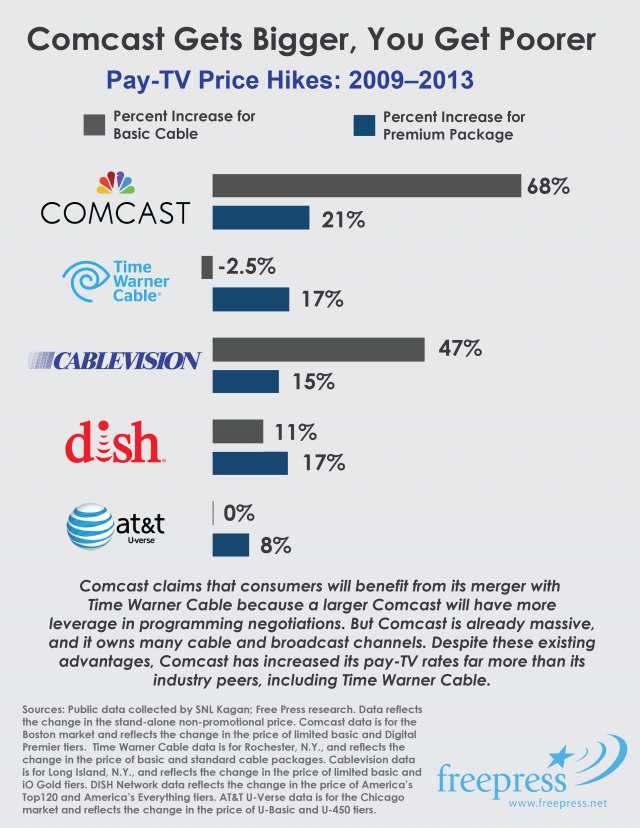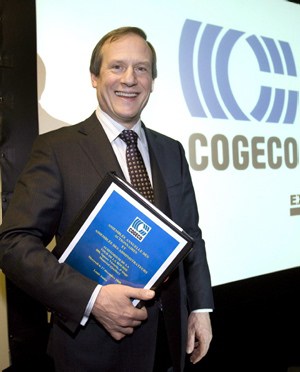
The Pinellas County Sheriff’s Office released this mug shot of Leonard I. Solt, 49, of Land O’Lakes, one of three people accused of defrauding the federal Lifeline program out of more than $32 million.
A lack of robust state oversight of independent contractors and resellers may have cost the Universal Service Fund and nationwide Lifeline program up to $1 billion in waste, fraud, and abuse.
This month, three men were accused of stealing more than $32 million in Universal Service Fund (USF) money that supported lavish lifestyles including the purchase of multiple luxury automobiles. The federal government wants the money back.
Leonard I. Solt, 49, of Land O’Lakes, Fla.,Thomas Biddix, 44, of Melbourne, Fla. and Kevin Brian Cox, 38, of Arlington, Tenn., all face federal criminal charges for allegedly padding the number of customers signed up for Lifeline phone service through five companies all connected to the men: American Dial Tone, Bellerud Communications, BLC Management, LifeConnex Telecom and Triarch Marketing.
In some cases, Lifeline cell phone service was completely subsidized by USF funding, allowing customers to sign up for free cell phone service. Average Americans cover the costs of the program through a surcharge on monthly phone bills.
The indictment charges the defendants with one count of conspiracy to commit wire fraud and 15 substantive counts of wire fraud, false claims and money laundering.
In an 18-month period from 2009 to 2011, the phone companies obtained more than $46 million through the Lifeline program.
Regulators have been suspicious of the companies and the men who ran them since at least 2010 when the Florida Public Service Commission noticed a dramatic spike in Lifeline reimbursement requests from Associated Telecommunications Management Services, LLC., the parent company of the five entities. The Florida PSC accused AMTS of misrepresenting customer enrollment when claiming reimbursement. It was not until June 2011 that the Florida PSC approved a settlement of $4 million from AMTS and an agreement to stop doing business in the state.
 The case illustrated several ostensibly-independent companies were created to market service across Alabama, Arkansas, Florida, Georgia, Indiana, Kansas, Kentucky, Louisiana, Michigan, Mississippi, Missouri, North Carolina, Ohio, Oklahoma, South Carolina, Tennessee, Texas, and Wisconsin. Many had ties back to AMTS management. Despite the Florida settlement, the firms continued to do business in multiple states. Many of the states involved have deregulated the telephone business and have cut staff at state agencies tasked with oversight issues.
The case illustrated several ostensibly-independent companies were created to market service across Alabama, Arkansas, Florida, Georgia, Indiana, Kansas, Kentucky, Louisiana, Michigan, Mississippi, Missouri, North Carolina, Ohio, Oklahoma, South Carolina, Tennessee, Texas, and Wisconsin. Many had ties back to AMTS management. Despite the Florida settlement, the firms continued to do business in multiple states. Many of the states involved have deregulated the telephone business and have cut staff at state agencies tasked with oversight issues.
By the time the federal government moved in to prosecute, the three men had used USF funds to buy a private jet, a 28-foot boat and six luxury cars, including an orange Lamborghini, a red-bronze Chevrolet Corvette, a black Cadillac Escalade, a Chevrolet Suburban limo, a black Mercedes Benz S63 and a blue Audi R8.
 Last week, government agents seized the vehicles from Biddix’s Melbourne-based pawn shop, Outdoor Gun and Pawn.
Last week, government agents seized the vehicles from Biddix’s Melbourne-based pawn shop, Outdoor Gun and Pawn.
The Wall Street Journal reported in 2013 that the FCC’s own data showed that more than 40% of the six million subscribers at five of the program’s top carriers were either ineligible or failed to show that they qualified for subsidized service. As more independent companies win authorization to start pitching Lifeline landline and mobile phone service to the poor, the cost of the program has skyrocketed to $2.2 billion last year, up from $819 million four years earlier.
The companies are reimbursed for providing service, providing an incentive to sign up as many as possible.
In Alaska, a GCI subsidiary, Alaska DigiTel hired a marketing company to help it sell Lifeline cell phone service. The company quickly began signing up patients in hospitals, using hospital addresses as their residence. It also encouraged applicants to list phony addresses. For four years, GCI profited from questionable reimbursements filed with the FCC. GCI finally agreed to pay a $1.5 million settlement that includes no admission of liability.
Other providers simply used telephone directories to collect names and mailing addresses of “customers” and sent them unsolicited cell phones for which they requested reimbursement.
An Oklahoma provider that regulators suspect got exceptionally greedy allegedly signed up so many Oklahoma residents to Lifeline service, the state is likely to exhaust the supply of phone numbers remaining in the 405 area code sooner than expected.

True Wireless received nearly $46 million under the program in 2012, bringing questions from Oklahoma’s Corporation Commission as to whether enrolling that many residents was mathematically possible. A cursory review found some customers had signed up multiple times in violation of federal rules.
In Wisconsin, the state Public Service Commission eventually revoked Midwestern Telecommunications Inc.’s ability to receive Lifeline funding after its overworked staff discovered MTI was mailing phones to customer that never requested them, billing the USF Fund for reimbursement. Some turned out to be children.
The scheme eventually began to unravel when a former Public Service Commission staffer received an unsolicited Lifeline phone. The alleged fraud was so great, MTI went from receiving 1% of Lifeline reimbursements in Wisconsin during the second quarter of 2010 to 33% of disbursements in the same quarter the following year.
The fraud also extends to Lifeline recipients, some who have bilked the program for free phones. A review of the Lifeline customer database revealed many customers had multiple Lifeline accounts, including some sent more than 10 free phones that were later reportedly resold on street corners.
Nationally, the $1.8 billion Lifeline Program subsidized phone service last year for 14.5 million low-income customers.
Customers are usually eligible if they are already enrolled in income-based programs such as Medicaid, food assistance or public housing, or if household income falls below 150 percent of federal poverty guidelines.
[flv]http://www.phillipdampier.com/video/WSJ Lifeline Fraud 2-18-13.flv[/flv]
WSJ’s Spencer Ante has details of a $2.2 billion government program to give cell phones to poor people that resulted in phones winding up in the hands of people ineligible for the program. (1:13)
 Despite arguing its merger with Time Warner Cable would result in greater discounts for cable programming, America’s largest cable company Comcast is already receiving the best volume discounts available but is not passing the savings on to customers.
Despite arguing its merger with Time Warner Cable would result in greater discounts for cable programming, America’s largest cable company Comcast is already receiving the best volume discounts available but is not passing the savings on to customers.


 Subscribe
Subscribe
 The case illustrated several ostensibly-independent companies were created to market service across Alabama, Arkansas, Florida, Georgia, Indiana, Kansas, Kentucky, Louisiana, Michigan, Mississippi, Missouri, North Carolina, Ohio, Oklahoma, South Carolina, Tennessee, Texas, and Wisconsin. Many had ties back to AMTS management. Despite the Florida settlement, the firms continued to do business in multiple states. Many of the states involved have deregulated the telephone business and have cut staff at state agencies tasked with oversight issues.
The case illustrated several ostensibly-independent companies were created to market service across Alabama, Arkansas, Florida, Georgia, Indiana, Kansas, Kentucky, Louisiana, Michigan, Mississippi, Missouri, North Carolina, Ohio, Oklahoma, South Carolina, Tennessee, Texas, and Wisconsin. Many had ties back to AMTS management. Despite the Florida settlement, the firms continued to do business in multiple states. Many of the states involved have deregulated the telephone business and have cut staff at state agencies tasked with oversight issues. Last week, government agents seized the vehicles from Biddix’s Melbourne-based pawn shop, Outdoor Gun and Pawn.
Last week, government agents seized the vehicles from Biddix’s Melbourne-based pawn shop, Outdoor Gun and Pawn.
 Despite growing competition from Bell’s fiber-to-the-neighborhood service Fibe, now expanding into many of Cogeco’s outer suburban service areas, Cogeco will not negotiate a better deal for customers, preferring to emphasize its customer service and “right-sizing” bundles of services to best meet customer needs.
Despite growing competition from Bell’s fiber-to-the-neighborhood service Fibe, now expanding into many of Cogeco’s outer suburban service areas, Cogeco will not negotiate a better deal for customers, preferring to emphasize its customer service and “right-sizing” bundles of services to best meet customer needs.
 AT&T U-verse with Gigapower is not coming to a home near you, although AT&T hopes you believe it will.
AT&T U-verse with Gigapower is not coming to a home near you, although AT&T hopes you believe it will. T-Mobile is back with some very aggressively priced packages on data plans, including one offering almost a year of free data. But more impressively, customers also have a chance to buy a 4G LTE-equipped tablet for the same price as a Wi-Fi only version.
T-Mobile is back with some very aggressively priced packages on data plans, including one offering almost a year of free data. But more impressively, customers also have a chance to buy a 4G LTE-equipped tablet for the same price as a Wi-Fi only version. The biggest problem wireless carriers have selling tablets is justifying the cost of 4G-equipped models that typically run at least $100 more than a Wi-Fi only version. As a result, 4G-equipped portable devices like these just don’t sell well. T-Mobile is tackling that problem by discounting the MSRP of their 4G tablets to the same price one would pay for a Wi-Fi only equipped device.
The biggest problem wireless carriers have selling tablets is justifying the cost of 4G-equipped models that typically run at least $100 more than a Wi-Fi only version. As a result, 4G-equipped portable devices like these just don’t sell well. T-Mobile is tackling that problem by discounting the MSRP of their 4G tablets to the same price one would pay for a Wi-Fi only equipped device.